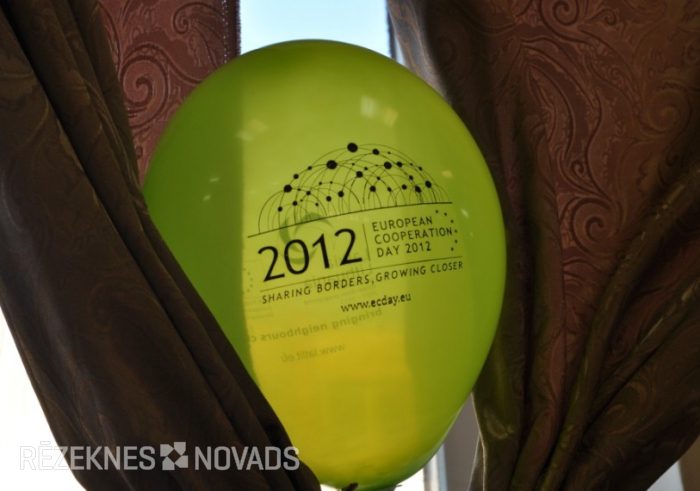The Rēzekne municipality also participates in the European Day of Cooperation

The Rēzekne municipality's external liaison officer Inta Rimšāne said of his experience in the implementation of projects involving university students who have had the opportunity to participate in several international projects that year, such as the “solidarity” project (EU programme “Europe for Citizens”), the Croatian municipality co-ordinated project “spark” (EU programme “Comenius”) and elsewhere.
Inta Rimšāne also presented the “green management” project of Estonia – Latvia – Russia, which is currently being implemented by the municipality of Rezekne. It provides for the promotion and implementation of “green policy” in spatial development planning processes. As part of the project, the recovery works of Anchupan Park have already been launched in early September.
The municipality of Rezekne continues to be involved in the various projects co-financed by the European Union, as it improves cooperation with neighbouring countries, neighborhoods and cities, as well as improving the quality of life of the population in border regions.